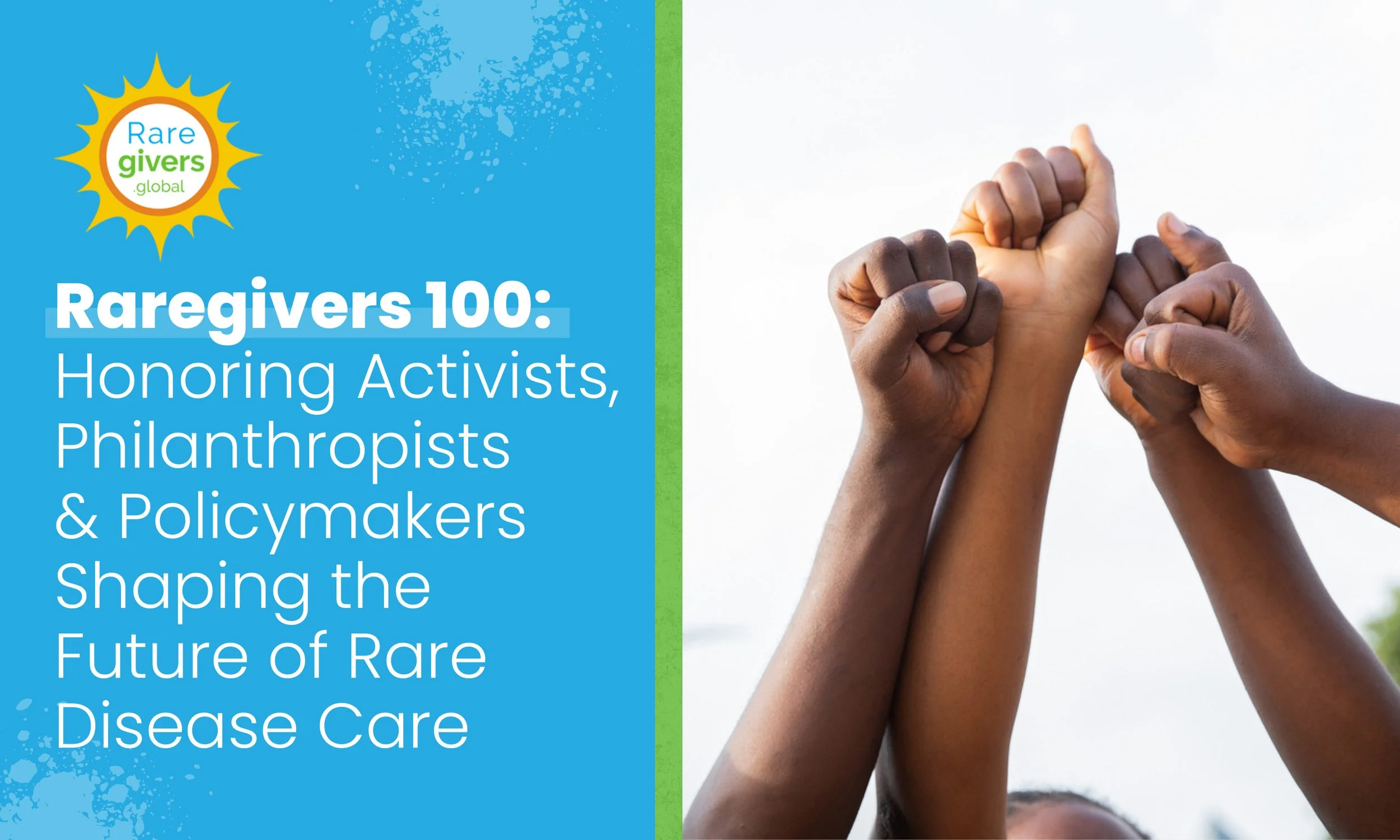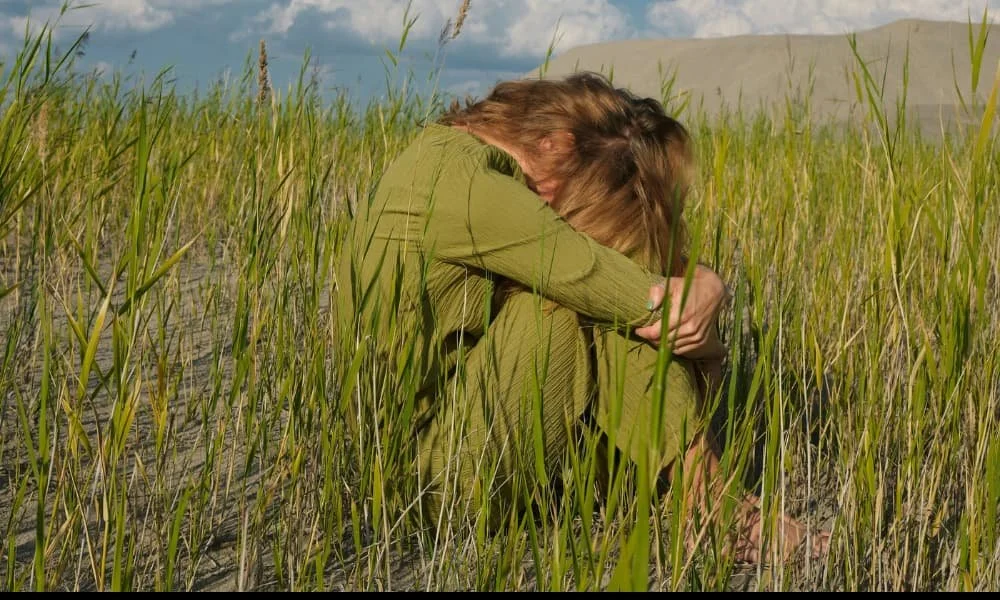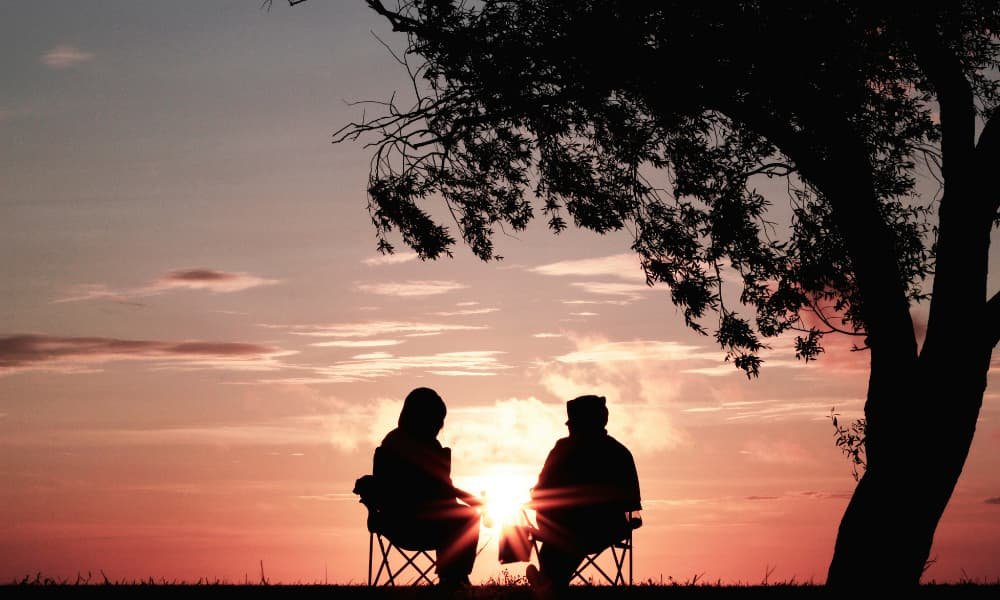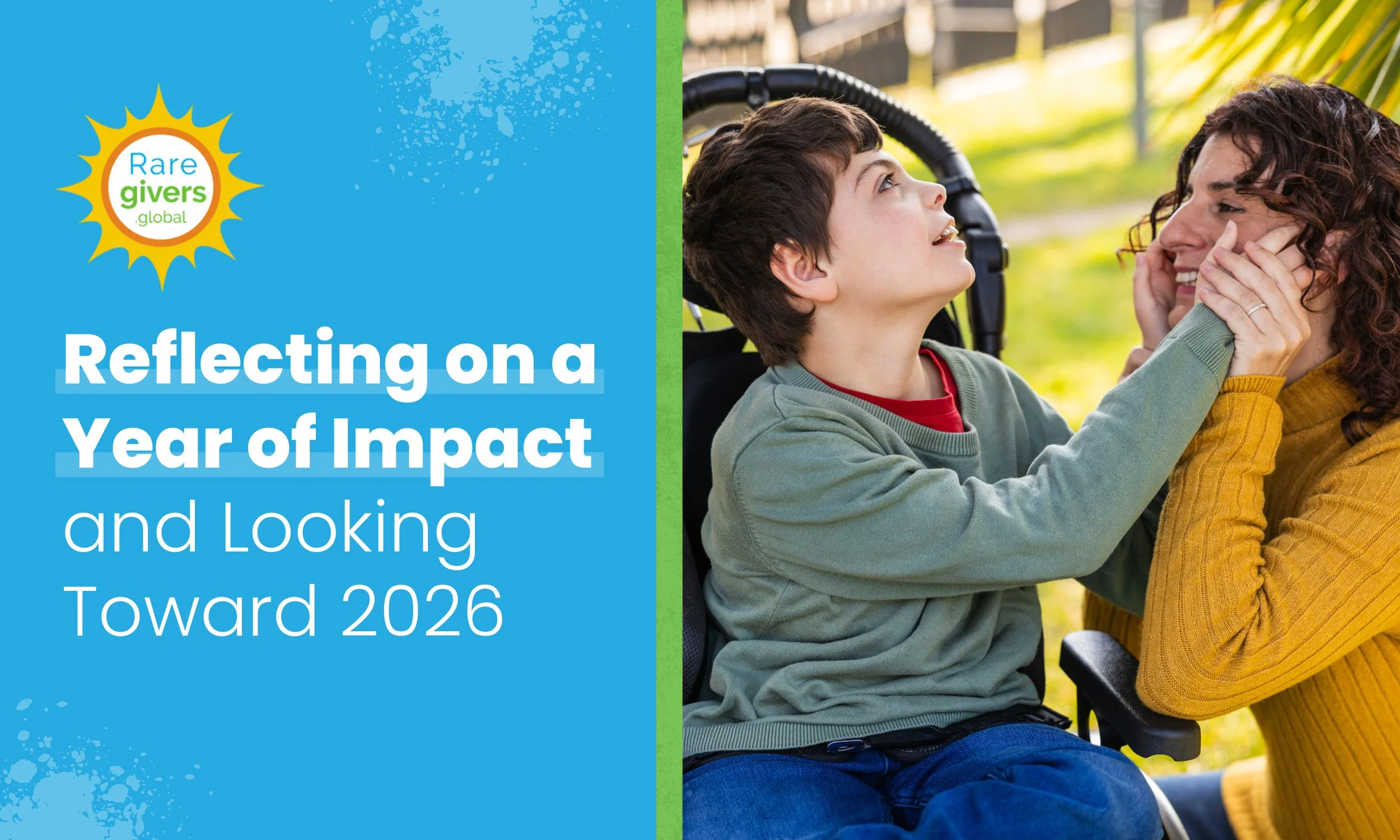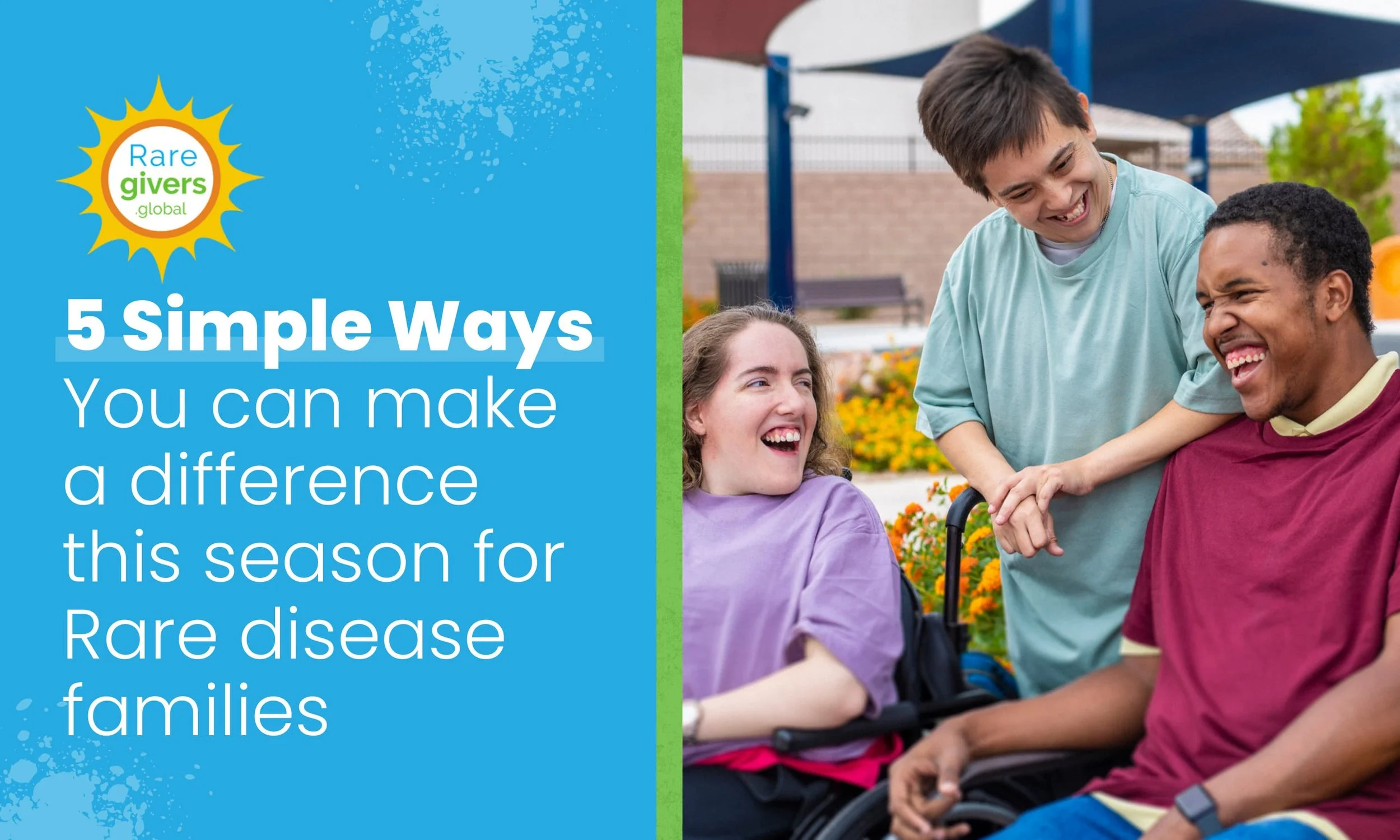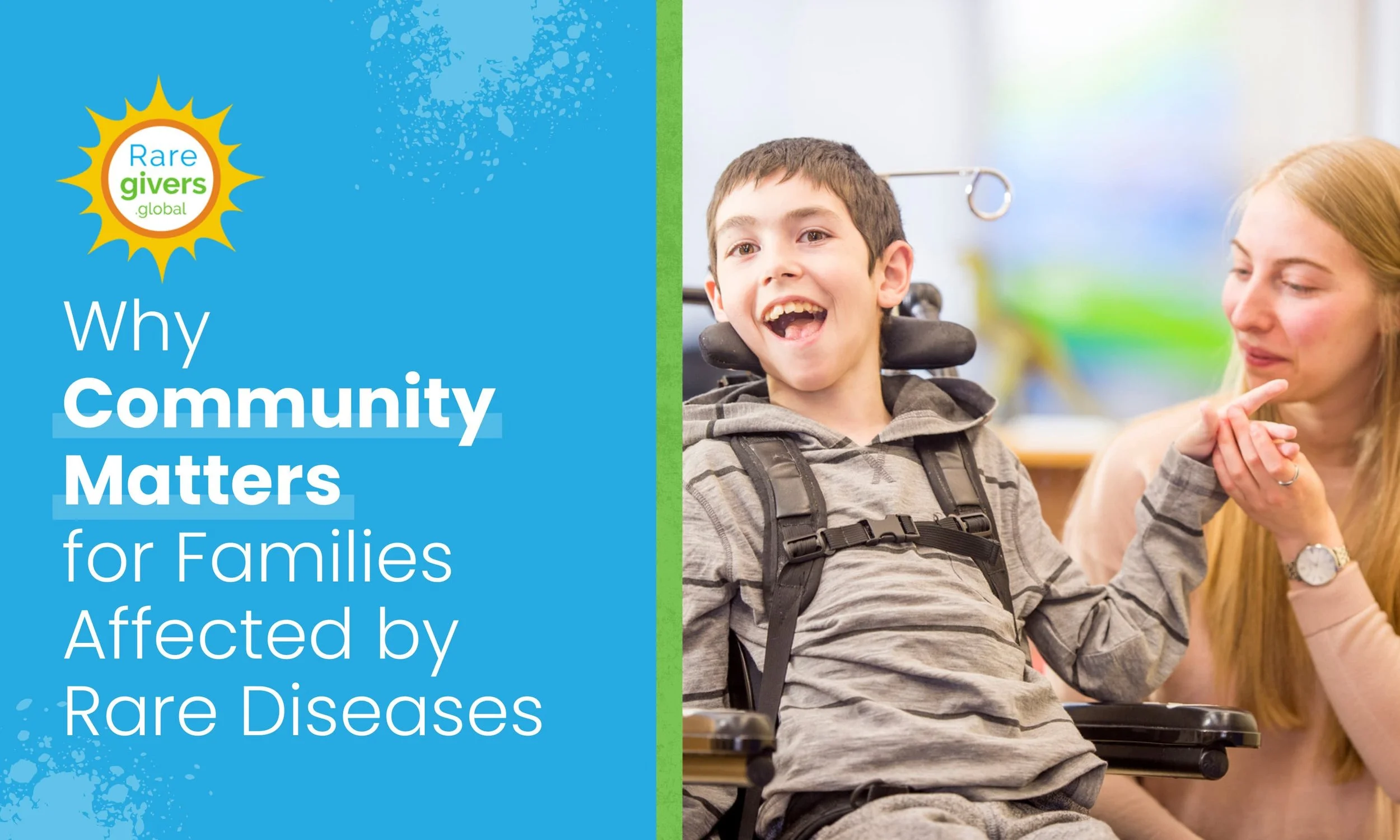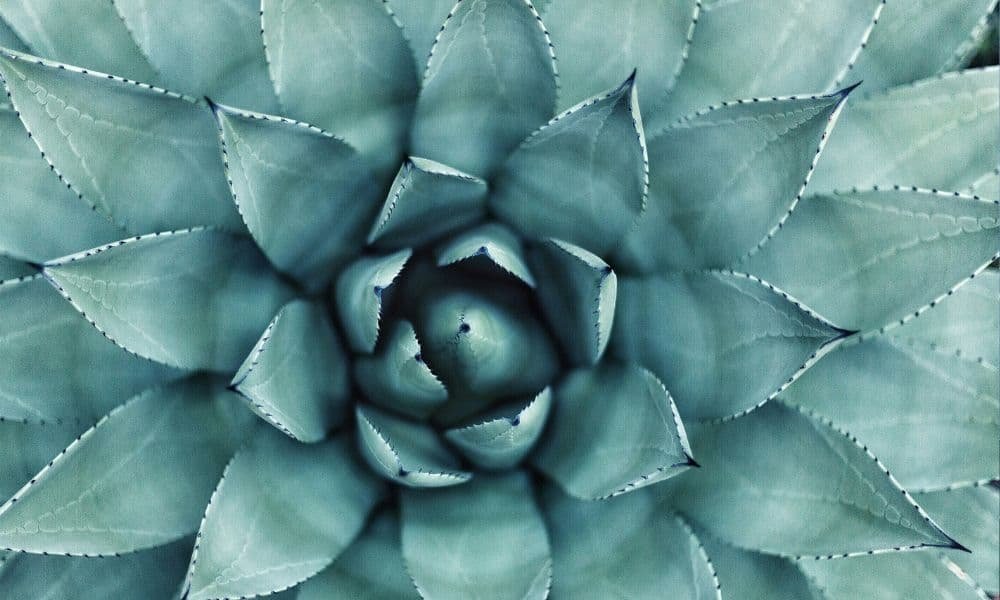
BLOGS
Raregivers100: Honoring 100 Changemakers in Rare and Chronic Disease
Meet the Raregivers100, a global tribute to 100 rare disease changemakers; individuals who are shaping the future of rare and chronic disease awareness, advocacy, and caregiving. From globally recognized voices to grassroots changemakers, these honorees are helping bring visibility, dignity, and action to communities too often left in the shadows.
Being A Super Mom Means Regulating Your Nervous System
Navigating a child’s Rare disease is uniquely challenging. There is so little information. You receive genetic counseling in the hospital, and then, for many raregivers, there is nothing. Until fairly recently, meaningful support was largely unavailable, that’s where we come in. Living in this prolonged uncertainty places the nervous system under constant strain. One of the most important skills a raregiver can develop is learning how to regulate their nervous system. Self-care is not indulgent; it is a form of self-empowerment. The more grounded you are within yourself, the more capacity you have to meet the realities of Rare disease as they unfold.
Raregivers 100: Honoring Activists, Philanthropists & Policymakers Shaping the Future of Rare Disease Care
When more than 350 million people worldwide live with rare diseases and fewer than 5% of over 10,000 rare conditions have approved treatments, progress cannot rely on medical innovation alone. The path forward also requires leaders who understand that sustainable care includes emotional support for caregivers, patients, and the professionals who serve them.
Activists raise awareness. Philanthropists provide resources. Policymakers shape systems. Together, they build the infrastructure that makes caregiver wellness not just possible, but prioritized.
Opening To Feelings
Our first Women’s Empowerment Circle of 2006 was incredibly powerful. We began by greeting one another and settling in, and I introduced the theme of gratitude. Gratitude is not a way to bypass reality, but rather is a practice of presence. Early on, someone shared that a child in their Rare community had died suddenly. Sudden deaths are especially destabilizing; there is no time to prepare, no gradual acclimation to the unthinkable. For raregivers, when a Rare child dies, it brings the fears that often live quietly in the background straight into the foreground.
Receiving Your Growth
We had a wonderful last Women’s Empowerment Circle of the year, and our hearts are full. We took time together to receive the things that grew us and to reflect on how we evolved over the course of the year. We spoke about how self-care practices are cultivated slowly, over time, and how they support us as we navigate emotional challenges. We honored the blessing of showing up consistently and how powerful it is regardless of which stage of the raregivers emotional journey you are on that you continue to be present with ourselves and our community. We are looking forward to diving back in with everyone next week on January 6th, 2026.
What’s Next?
We had a beautiful Women’s Empowerment Circle this week which was the last one of this series and the year. It was filled with tenderness, honesty, and deep connection. As we sat together, it became clear how many raregivers carry grief that is both profound and uniquely isolating, especially for those whose Rare child has died. The holidays can intensify this experience, stirring memories, longing, and moments of quiet sorrow. If this is you, please know you are not alone, and there is no “right” way to grieve.
Strategies for Communicating Hard Things
Communicating difficult news, whether about health, family challenges, or major life changes is one of the hardest things we do, yet it’s also one of the most important. When emotions run high, clarity and compassion matter more than ever. Approaching tough conversations with intention—choosing the right moment, grounding the discussion with empathy, and speaking honestly but gently can transform a painful exchange into a moment of connection.
Reflecting on a Year of Impact and Looking Toward 2026
Reflect on a year of impact with Raregivers. Explore our 2026 goals for growing the rare disease community and advancing caregiver-centered change.
A Holiday Season With More Compassion, Connection, and Ease
The holiday season can be joyful—and overwhelming. For Raregivers caring for someone with a rare disease, disability, or medically complex condition, this season often carries more emotional labor, medical logistics, and quiet grief than anyone else can see. This year, instead of squeezing yourself into expectations that don’t fit your life, consider this your invitation to move through the season with more compassion, connection, and ease—starting with your own nervous system.
5 Simple Ways You Can Make a Difference This Season for Rare Disease Families
Discover five simple ways to make an impact this season through holiday giving, volunteering, and practical support that helps rare disease families feel seen and supported.
Why Community Matters for Families Affected by Rare Diseases
Discover why community matters for families affected by rare diseases and how Raregivers reduces isolation, shares practical support, and strengthens advocacy and care.
Two Simple Gratitude Practices That Bring Us Back to Ourselves
In the Raregivers community, so much of our energy is spent caring for others that our own needs can fade into the background. When life is full and resources are scarce, “self-care” can feel out of reach. But gratitude, when approached gently, can offer small moments of grounding that support us from the inside out. These two practices are simple, require just a few moments of time, and can be woven into the life you’re already living.
Expressing Needs with Care: Routines, Requests, and Self-Compassion for Raregivers
This week in our Tuesday Women's Empowerment Circle we talked about having needs, making requests, and setting skillful boundaries. As a raregiver you have a very full life and may have both Rare and neurotypical children. It may not be uncommon to take on extra things at your neurotypical child's school and feel like you end up being stretched. In times like these, it's useful to use your team. First, you need to recognize that you have needs by slowing down, pausing, looking inside, and discerning what it is that you need. Many raregivers find that it is useful to create routines to support healthy habits and create sustainability.
How Raregivers Brings Hope and Strength to Rare Disease Families
Discover how Raregivers supports and empowers rare disease families with emotional care, community connection, and meaningful giving.
Boundaries as an Act of Self-Love
Boundaries are an act of self-love. They keep us safe from the perils of our own inner critic, prevent us from saying yes to draining activities, and help us refrain from indulging in unhealthy habits. Boundaries are, in essence, a way of holding our own hearts.
Being Seen And Heard: Shine Your Light As You Communicate
The focus of our Women's Empowerment Circle this week was on nervous system regulation, and how to stay calm especially when you are noticing changes (Stage 1 on the Emotional Journey Map) in your Rare child. As a Raregiver, you may often be in a state of hypervigilance which is very taxing for the nervous system. The question is how can you set yourself up to be resourced even when you are sitting with your Rare child as they undergo their fiftieth surgery?
Meeting Your Feelings
This week in our Women's Empowerment Circle we looked at what comes up when you first receive a diagnosis for your Rare child; this is stage two "adjusting to the diagnosis" on the Emotional Journey Map. You will likely experience an array of feelings from disappointment, to sadness to anger.
You might find that you are frustrated as you look for answers and become the resident expert on your child's Rare disease. You're now navigating mountains of extra paperwork and a system that is inherently broken. Perhaps you experience anger at the system and disappointment that your life is turning out vastly differently than you had imagined it would.
What Is Belonging?
Belonging is a basic human need–we thrive when we are part of a tribe and in the days of saber tooth tigers, our survival depended on it. At our core, we want to feel seen, accepted, and embraced for who we truly are. Yet many of us move through life carrying the quiet ache of feeling like outsiders—whether in our families, our communities, or even in our own hearts. That sense of disconnection can leave us doubting ourselves, spinning in worry, or questioning if we’ll ever truly fit in. As a raregiver, you have likely experienced feeling like an outsider on a regular basis. It can be tricky territory to know how much to share with people who are not raregivers.
When Survival Becomes a Family Affair: The Power of Caregiving in Sam Humphrey’s Story
Every November, National Family Caregivers Month reminds us to pause and recognize the families who show up, day after day, for someone they love. For those living with rare diseases, caregiving isn’t a choice. It’s a way of life. It means carrying the invisible weight of appointments, treatments, and emotions that few others ever see.
Few stories capture that reality better than Sam Humphrey’s. The actor, known for The Greatest Showman, has been open about his life with a rare condition and how his family stood beside him through some of his hardest years. His journey shows us that caregiving is not just about medical management—it’s about devotion, endurance, and love in its purest form.
Carried: A Conversation with Sam Humphrey on Mental Health, Family Caregiving, and Resilience
In Recognition of National Family Caregivers Month - November 2025
Mental health rarely happens in isolation. When one person struggles, an entire family feels the impact. When one person begins to heal, everyone begins to breathe again.
That truth lies at the heart of our latest Raregivers conversation with Sam Humphrey, the actor and advocate best known for The Greatest Showman. In Part 2 of his story, released this November for National Family Caregivers Month, Sam speaks about his ongoing journey through mental health challenges and how his family carried both his pain and their own.
STAY IN TOUCH
Sign up & receive updates about our community!



